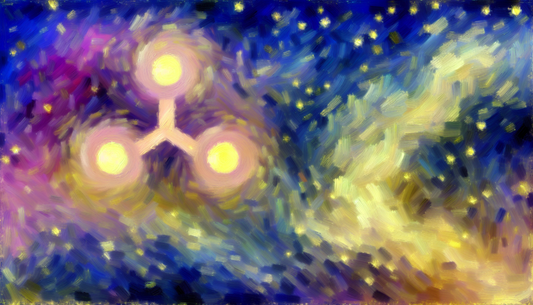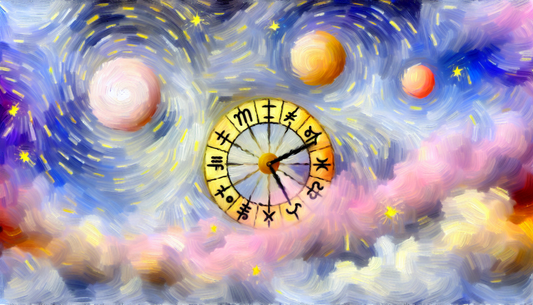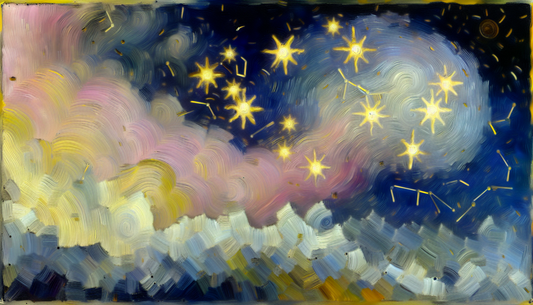Cultural practices and beliefs throughout history have significantly shaped the traditions and rituals of societies around the world, and the Chinese Zodiac is no exception. Rooted in ancient Chinese philosophy, this zodiac system assigns a specific animal to each year in a twelve-year cycle, each animal embodying unique qualities and characteristics. These attributes influence not only individual personalities but also communal cultural practices, beliefs, and even festivities. Let's explore how the Chinese Zodiac influences various facets of life in Chinese culture.
The Twelve Animals and Their Symbolism

Each of the twelve animals in the Chinese Zodiac - Rat, Ox, Tiger, Rabbit, Dragon, Snake, Horse, Goat (or Sheep), Monkey, Rooster, Dog, and Pig - comes with its own symbolism, which influences societal beliefs profoundly. For instance, the Rat is known for its cleverness and adaptability, which can inspire people born in a Rat year to be resourceful and opportunistic. Conversely, the Dragon symbolizes power and strength, urging people to overcome challenges with determination.
These characteristics extend beyond personal identity. Communities often create festivals, art, and performances around these symbols to celebrate the attributes that each animal represents. For example, the vibrant Dragon Dance performed during Chinese New Year not only showcases the animal’s significance but also brings people together in celebration, embodying the qualities associated with the Dragon.
Zodiac Animals in Festivals and Celebrations

The influence of the Chinese Zodiac is especially palpable during major festivals, especially the Spring Festival, commonly known as Chinese New Year. As families come together to honor their ancestors, they also focus on the zodiac animal of the incoming year. For example, the year of the Tiger will inspire various festivities that channel the Tiger's energy, emphasizing courage and exuberance.
During these celebrations, traditional foods are often prepared to honor the year's animal. Its characteristics inspire culinary choices and rituals, ensuring that the zodiac remains at the forefront of cultural customs. Families may also undertake special rituals for luck, such as cleaning their homes symbolically to sweep away bad fortune, often completing these before the new year's commencement.
How the Zodiac Shapes Relationships and Compatibility
The Chinese Zodiac plays a significant role in relationships, with many individuals seeking out partners whose zodiac signs are deemed compatible. Traditional beliefs assert that certain animal signs harmonize well with others while some may clash, shaping people's views on marriage and friendships.
For instance, a man born in the year of the Monkey - known for being clever and energetic - might be seen as a good match for someone born in the year of the Dragon, renowned for its strength and ambition. Conversely, a person born in the year of the Rabbit, who is typically gentle and diplomatic, might find more kinship with a Goat, which is also seen as calm and gentle.
This compatibility extends to family dynamics as well. Elders may offer advice on matchmaking based on zodiac signs, emphasizing the animal's traits to guide younger generations in their relationships. Individuals may purposefully align their lives and decisions according to the zodiac, believing it fosters harmony and strengthens bonds within families and friendships.
The Influence on Everyday Life and Decision-Making
The wisdom of the Chinese Zodiac permeates everyday life - from career choices to everyday activities. People often look toward the zodiac for guidance when making significant decisions. For example, it’s common for individuals to consider their zodiac's auspicious dates for starting new ventures, such as opening a business, getting married, or even moving into a new home.
Certain years may be regarded as more favorable for undertaking specific ventures, based on the characteristics of the zodiac animal ruling that year. Those born in the year of the Horse, known for their energy and competitive spirit, may feel especially motivated to chase personal goals during the year of their own sign, believing it maximizes their opportunities for success.
As a result, the zodiac can provide comfort and reassurance during uncertain times. By adhering to its guidelines, people feel a connection to their cultural heritage, grounding them in centuries-old traditions while navigating the complexities of modern life.
The Connection Between the Zodiac and Traditional Chinese Medicine
While the Chinese Zodiac largely revolves around personalities and social constructs, it also finds connection in more practical realms like Traditional Chinese Medicine (TCM). TCM emphasizes the balance of Yin and Yang, and different zodiac signs can embody these elements.
For instance, Fire signs such as the Snake and the Horse are seen as passionate and dynamic but may also require caution against overexertion or depletion of energy. Treatments may focus on restoring balance through specific herbs or acupuncture methods to align with these elemental qualities.
This connection reminds practitioners and patients alike that health is about harmony - not just on a personal level but within their environment. The seasonal attributes tied to particular zodiac animals can guide the timing of treatments or rituals aimed at improving one's well-being.
Conclusion
The Chinese Zodiac's influence on cultural practices and beliefs speaks to the rich tapestry of traditions that have evolved over centuries. From shaping personal identities to creating community bonds and guiding decisions, the Zodiac offers a unique lens through which individuals can navigate their roles in society. The vibrancy of the twelve animal symbols resonates deeply within Chinese culture, demonstrating the powerful intersection of identity, heritage, and belief.
As we embrace these traditions, we not only honor our ancestry but also celebrate the essential qualities that connect us to one another, weaving a narrative of unity, respect, and shared experience that transcends the passage of time.















